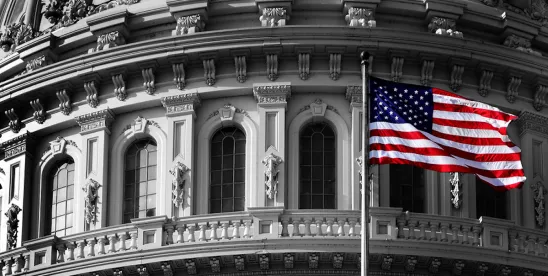In 1938, as the world descended into a second world war and Europe’s new totalitarian states perfected the arts of propaganda and subversion, Congress passed the Foreign Agents Registration Act (FARA). While FARA did not seek to criminalize speaking or lobbying for a foreign power, it did mandate disclosure. Any person acting on behalf of a foreign entity was required to register and disclose this relationship with federal authorities. The theory behind FARA was elegantly constitutional: sunlight, not censorship, would preserve the republic.
More than eight decades later, the times, as well as the challenges of FARA enforcement, have changed. Foreign actors still seek to wield influence in the United States, but today, they’re looking to flex their muscles far beyond the nation’s capital.
Which brings us to Albany.
It was recently announced that Linda Sun, a former top aide to New York Governor Kathy Hochul, will stand trial in November for allegedly secretly acting as an agent of officials from the Chinese consulate in New York while serving in state government. Sun is accused of arranging diplomatic meetings, influencing state policy toward Taiwan, altering public messaging to suit Beijing’s preferences, and accepting lavish gifts for doing China’s bidding. And this was all done without disclosing her relationship with the foreign government alleged to have directed her.
This is, if proven, the quiet repurposing of American public power by a foreign adversary. And it signals something that demands our attention: state and local governments are now targets for foreign influence operations. The era in which foreign agents confined their ambitions to Washington, D.C., is over.
Foreign policy is constitutionally a federal prerogative, but power in America is decentralized. Governors influence trade missions. State legislatures pass resolutions expressing their views on global affairs. University systems oversee federally funded research important to America’s national security and economy. Municipal leaders weigh in on foreign conflicts with increasing frequency. China, ever aware of America’s vulnerabilities, has adjusted its tactics accordingly.
Beijing’s efforts to cultivate influence in American statehouses should surprise no one. The Chinese Communist Party’s “United Front” strategy has long emphasized elite capture, local partnerships, and narrative management. What is novel is the brazenness of the activity and its infiltration of high-level state executive offices. The Sun case, whatever its outcome, is a warning: in the absence of vigilance, state governments may become unwitting instruments of foreign powers.
This places a new burden on the Department of Justice—now under the leadership of Attorney General Pam Bondi—to thread a delicate constitutional needle. FARA is not a vehicle for punishing unpopular opinions or run-of-the-mill foreign engagements. The statute’s power lies in its restraint. It does not prohibit foreign-directed advocacy—it insists only that such advocacy be disclosed.
To that end, President Trump’s Department of Justice appears to be adopting a policy of precision: to prosecute only “espionage-adjacent” FARA violations—those involving deception, national security risk, or active concealment. This is a commonsense and constitutional approach, and it is one that avoids prosecution of mere technical violations, while preserving the integrity of the statute’s original purpose.
If the Sun prosecution is to serve as a model, let it be for this narrow but necessary application of FARA: when public officials operate in secret for foreign sovereigns while wielding American governmental authority, disclosure is not merely a bureaucratic requirement. Disclosure of such a relationship would obviously undermine the entire malicious plot. Thus, the true problem in such a case is not merely failure to file paperwork, but a larger espionage-like scheme. This appears to be exactly how Attorney General Bondi and the new Justice Department leadership will focus on these issues.
FARA, as it is written, retains the tools to meet the moment—provided it is enforced with prudence, clarity, and constitutional fidelity. In the case of Linda Sun, the Department of Justice appears prepared to do just that. By focusing its prosecutorial power on high-level violations of FARA that compromise America’s national security, the Trump administration has an opportunity to uphold the legitimacy of this all-important law.
In an age when foreign influence operations have grown more sophisticated, defending American sovereignty means guarding not only Washington, but Albany, Sacramento, Austin and every other seat of governmental authority. The vigilance of the federal government in this case may prove a model—not of federal overreach, but of federal power properly exercised.





 />i
/>i

